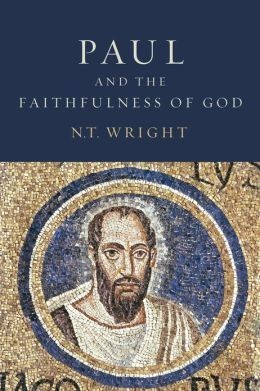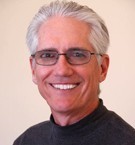This is the second part of a two-part series. To read the previous post, please see Part One.
I am not particularly enthralled with the spiritual gifts debate that is currently undergoing a renaissance of sorts, via John MacArthur’s Strange Fire conference and publications. Been there. Done that. I was a new believer when the same debate was raging back in the late 1970s, and it is a bit discouraging to see the church divided, once again, over a topic that was beat into the ground a generation ago.
I tend to agree, moreover, with the “Open But Cautious” view of my mentor on the topic, Robert Saucy, so the issue is pretty much settled for me. (Are we really going to have something new to say about τὸ τέλειον in 1 Corinthians 13:10? About the middle voice of παύσονται in verse 8?)
I do think that Big Mac and company have a message for the rest of us, however—a very important message that has more to do with the place of serious theology in the church, than with the cessation or continuation of the gift of tongues or prophecy.
 N. T. Wright weighs in with passion on this very issue near the end of Book I of Paul and the Faithfulness of God. No, Wright is not interested in the Strange Fire debate currently dividing American evangelicals. N. T. Wright and John MacArthur live in very different worlds, in that regard, and I very much doubt that Wright will even read Mac’s book.
N. T. Wright weighs in with passion on this very issue near the end of Book I of Paul and the Faithfulness of God. No, Wright is not interested in the Strange Fire debate currently dividing American evangelicals. N. T. Wright and John MacArthur live in very different worlds, in that regard, and I very much doubt that Wright will even read Mac’s book.
But Wright does share MacArthur’s concern that Jesus’ followers should think hard about God, and about what God has done in Christ. In fact, Wright situates the life of the mind at the very center of Paul’s project:
Paul’s worldview “will only function if it is held together by humans with transformed minds, and who use those transformed minds constantly to wrestle with the biggest questions of all, those of God and the world. It is almost as though the entire system is designed to challenge humans to grow up in their understanding.” (page 567)
Quite a sweeping observation! And it gets even better. Wright sees theology as a relatively novel enterprise in the ancient world:
“‘Theology, as we now call it (though Paul did not) thus plays a new role in Paul’s world, and thereafter in principle throughout the history of the church. It was new in relation both to Judaism and paganism.” (page 567)
One might almost say that Paul invented theology! And he did so out of necessity, because God’s church could not survive without it.
A little background helps us appreciate Wright’s bold assertion.
As I consistently remind my students in Exegesis in the Gospels, before Christianity appeared on the scene, religion in the New Testament world had more to do with what a person did than with what he or she believed. Though it is hard for us to grasp, theology (as we understand it) was at best an ancillary aspect of religion, even among Jews, in Paul’s day.
Judaism and paganism boasted temple cults, with elaborate and carefully prescribed sacrificial rituals for engagement with the divine. Jews also marked out their place on the social and spiritual map of antiquity by means of male circumcision, Sabbath-keeping, and the food laws. Finally, Jews and Gentiles each had a calendar full of religious holidays to remind them who they were vis-à-vis other groups in the ancient world.
With so much to do that reinforced religious identity, serious reflection about the nature of God (theology) was (1) simply irrelevant to the average pagan (philosophers were sort of an exception) and (2) not “a hill to die on” for most Jews.
This is why, on such a crucial doctrine as the resurrection, for example, Pharisees could say “Yes,” Sadducees could say “No,” and no one challenged the claim of either to be card-carrying Jews. (Imagine Christians debating a doctrine of this significance. You can already hear the Anathemas flying from both camps!)
This is also why a highly Hellenized Jewish contemporary of Paul, Philo of Alexandria, could get away with describing God as τὸ ὄν—a neuter participle from the Greek verb “to be,” meaning something to the effect of “The Existing Thing” (The Force?). As long as Philo observed the food laws and kept the Sabbath, this radical theological departure from God as portrayed in the Hebrew Scriptures was apparently no big deal. Philo was considered just as Jewish, in the eyes of his contemporaries, as the most conservative Pharisee.
Now, of course, a Jew could not believe just anything, as illustrated by the conflicts between Christian and non-Christian Jews in the New Testament. Even here, however, it is interesting to note just how often the points of contention relate (a) to what God’s people should do (eat with Gentiles?), or to when they should do it (heal on the Sabbath?), rather than (b) to the finer points of theology.
Sweep away the To Do list, however—as the Jesus movement did, by eliminating temple sacrifices, circumcision, food laws, and Sabbath-keeping—and suddenly the sociological territory that these practices had staked out for the people of God vanishes along with the practices themselves.
What is left is a new community, marked out, instead, as Wright observes, by unity and holiness. But, alas, unity and holiness turn out to be rather tenuous and potentially contestable bases for developing a robust socio-religious identity.
Imagine the reaction at Corinth: Paul, we know what circumcision is, and everyone knows that the Sabbath falls on Saturday. But what do you mean by ‘the unity of the Spirit’? And just what does it mean to be ‘holy’? You’ll recall that the Corinthians apparently defined both unity and holiness quite differently than did their not-so-beloved apostle!
Paul’s response to the above questions was, in a word, theology. The unity and holiness of the church would ultimately find their legitimation, for Paul, in the very nature and character of God himself. Trinitarian monotheism and the doctrine of election demanded a people who were united in spirit and set apart from the world, respectively. And so it went for virtually every other aspect of Christian faith and practice.
In the absence of an externally defining constellation of prescribed religious behaviors, the early Christians simply had to understand who they were in Christ, as the true people of God. Fail to grasp this and “the central worldview-symbol of a single united ekklesia collapsed at once” (page 566). Theology, for the first time in the history of God’s people, thus became a fundamentally defining enterprise. And it remains so today:
“Only mature thinking will sustain the worldview. The subsequent history of the church, not least of the western church, indicates only too clearly what happens when people stop doing theology and try to sustain an ecclesial reality by some other means.” (page 567)
Read that last sentence again. It is crucial.
Whatever our views about spiritual gifts, John MacArthur and company are absolutely “on point” in one respect. It is simply a given that extreme expressions of charismatic “theology”—whether (a) the deplorably heretical Word of Faith movement in America or (b) syncretistic blends of Pentecostalism and indigenous folk religion in the Third World—epitomize what happens when experiencing God trumps knowing God in determining what does and does not constitute orthodox Christian faith and praxis, that is, (in Wright’s words) “when people stop doing theology and try to sustain an ecclesial reality by some other means” (page 567).
How did Paul put it? “In church I would rather speak five words with my mind in order to instruct others, than ten thousand words in a tongue.” (1 Cor.14:19)
Speak to us, Paul. We’re listening. With our Greek Bibles open, and Calvin, Shedd, and Grudem (and maybe a little N. T. Wright) close at hand.
 Biola University
Biola University
.jpg)

.jpg)
.jpg)